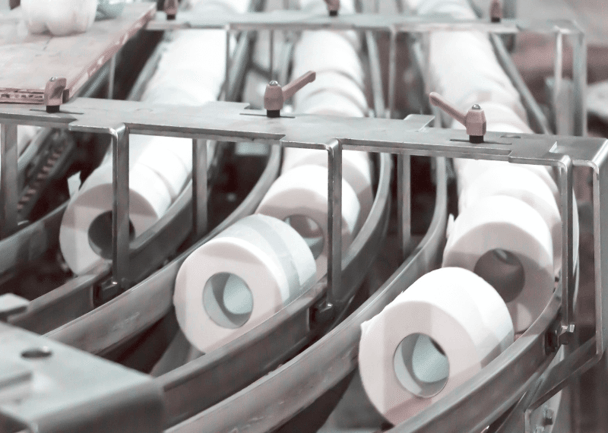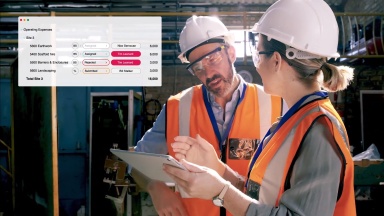Janitorial stock and inventory management
Take a smarter approach to janitorial stock and inventory

Does your ERP restrict you?
Integrating a simple business intelligence software will give you a clear picture of what’s happening across your business. Phocas delivers insights that allow you to work smarter by streamlining operations and discovering new growth opportunities.




The analysis we get from our data is invaluable
SC Johnson relies on Phocas to keep on top of its business, identify what product lines to watch and key trends across its customer base.
Read the case studyFinally an easy button for your janitorial data
Success story 
Improved stock management and profit gains for Pool Pro


We used to be on Excel spreadsheets and that was very time-consuming. We switched to Phocas and it enabled us to see the data in real-time and as quick as we could possibly click the button, the data would be there.
— Sean Ralph, Managing director at Pool Pro.
Data availability
Trustworthy data that helps you succeed
Don’t be bypassed or blindsided in this competitive market. It’s mission-critical that janitorial wholesalers deliver exceptional customer service, convenience, an extensive range of products, and competitive pricing.

Streamline operations
Reports and insights without the IT bottleneck
Offer more competitive pricing, and streamline operations to reduce costs. Take bigger orders, know what to purchase when and how to keep stock turns healthy with a practical data analytics tool that can be used by everyone across your business, anywhere.

Unlock potential
Get true sales intelligence from your ERP
For janitorial businesses with large product portfolios, demanding logistics and far-reaching customer bases, this tool is the missing link between the data you already have locked in internal systems and an optimized supply and demand process and strategy.

Phocas benefits for the janitorial industry
Sell more
Sales sees all that matters: stats of individual customers, purchasing history, gaps for cross- and upselling opportunities.
Win big accounts
Sharing insights and sell thru data with customers and manufacturers creates favourable negotiations and richer partnerships.
Improve visibility
Track margins and profitability by customer, customer buying habits, inventory holdings and movement and product performance.
Average doesn't move the industry forward, but we do.
Our mission at Phocas is to make people feel good about data. This is reflected by our customer satisfaction - the highest in the category - and the fact that 97% of surveyed customers* would recommend us to a friend!
Phocas
Product satisfaction: 10
10
Product satisfaction
Ease of use: 9.4
9.4
Ease of use
Business value: 9.6
9.6
Business value
Customer satisfaction: 9.4
9.4
Customer satisfaction
Recommendation: 10
10
Recommendation
QlikView
Product satisfaction: 5
5
Product satisfaction
Ease of use: 3.3
3.3
Ease of use
Business value: 4.7
4.7
Business value
Customer satisfaction: 4.2
4.2
Customer satisfaction
Recommendation: 2.9
2.9
Recommendation
Domo
Product satisfaction: 7.2
7.2
Product satisfaction
Ease of use: 9.8
9.8
Ease of use
Business value: 4.4
4.4
Business value
Customer satisfaction: 6.1
6.1
Customer satisfaction
Recommendation: 4.4
4.4
Recommendation
Power BI
Product satisfaction: 5.8
5.8
Product satisfaction
Ease of use: 4.6
4.6
Ease of use
Business value: 4.7
4.7
Business value
Customer satisfaction: 5.2
5.2
Customer satisfaction
Recommendation: 4.6
4.6
Recommendation
Looker
Product satisfaction: 7
7
Product satisfaction
Ease of use: 5.8
5.8
Ease of use
Business value: 7.7
7.7
Business value
Customer satisfaction: 7.8
7.8
Customer satisfaction
Recommendation: 7.9
7.9
Recommendation
*Based on the aggregate of "Definitely" and "Probably".
Source: The BI & Analytics Survey 23, BARC
Source: The BI & Analytics Survey 23, BARC
Product satisfaction
10
Phocas
5
Qlikview
7.2
Domo
5.8
Power BI
7
Looker
Ease of use
9.4
Phocas
3.3
Qlikview
9.8
Domo
4.6
Power BI
5.8
Looker
Business value
9.6
Phocas
4.7
Qlikview
4.4
Domo
4.7
Power BI
7.7
Looker
Customer satifaction
9.4
Phocas
4.2
Qlikview
6.1
Domo
5.2
Power BI
7.8
Looker
Recommendation
10
Phocas
2.9
Qlikview
4.4
Domo
4.6
Power BI
7.9
Looker
*Based on the aggregate of "Definitely" and "Probably".
Source: The BI & Analytics Survey 23, BARC
Source: The BI & Analytics Survey 23, BARC
Understand the past, operate better today, and plan well for the future
Whether you want to get your data organized for your team or you’re looking to combine business intelligence capabilities with financial reporting, planning and forecasting… We can help.
Get a demo



